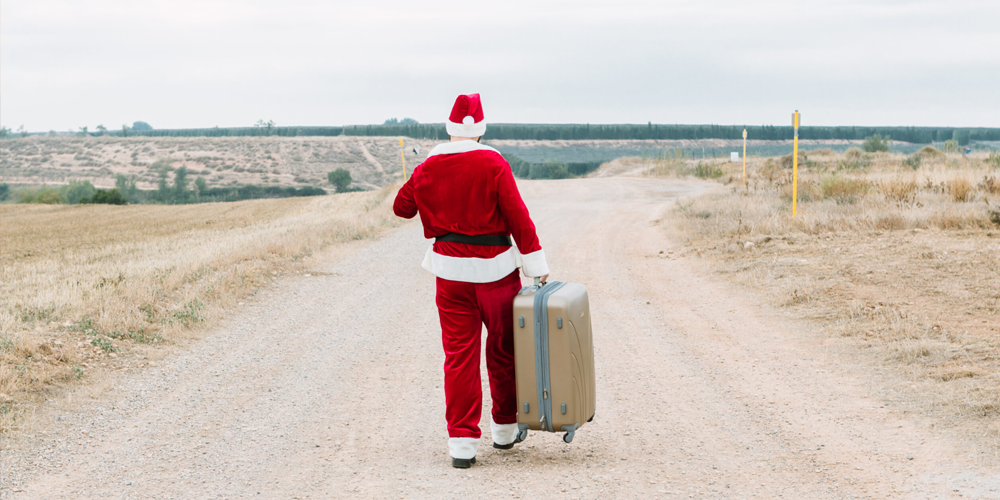
Wilderness Wanderings: Preparing Your Heart for Christmas
introduction: Beyond the Glittering Lights As Christmas approaches, we are engulfed by a whirlwind of activities – decorations, gift shopping, family gatherings. Yet beneath the festive trappings lies a profound spiritual journey, a journey often…
introduction: Beyond the Glittering Lights
As Christmas approaches, we are engulfed by a whirlwind of activities – decorations, gift shopping, family gatherings. Yet beneath the festive trappings lies a profound spiritual journey, a journey often forged in the quiet and barren expanses of a wilderness. Throughout the Bible, the wilderness is a recurring motif for times of preparation, testing, and intimacy with God. This blog invites you to explore the biblical significance of the wilderness and offers guidance on how to utilize this season as a period of spiritual preparation for Christmas.
Deserts of Old: Biblical Preparation Grounds
The wilderness is interwoven with the narratives of key biblical figures. Moses fled to Midian’s deserts after leaving Egypt, ultimately encountering God in a burning bush. Here, in solitude, stripped of Egyptian royalty, he was shaped into a deliverer for his people (Exodus 2:15-3:10). Later, the Israelites wandered for 40 years in the wilderness, a time of purification and instruction before entering the Promised Land (Numbers 14:33-34). And before beginning His public ministry.
Jesus fasted 40 days in the Judean desert, confronting temptations that would crystallize his resolve for the mission ahead (Matthew 4:1-11).
These wilderness experiences share common themes—separation from the normative structures of society, confronting personal and communal shortcomings, and, ultimately, drawing closer to the divine purpose. They suggest God’s pattern of using the wilderness as a crucible for transformation. These biblical narratives are not just stories from the past but are echoed in the lives of Christians throughout history, such as Antony the Great, who is known as the Father of Monasticism and sought God in the Egyptian desert, setting a model for Christian asceticism.

The Wilderness Within: Contemplating the Heartscape
As Christmas fast approaches, there is a call to navigate an internal wilderness—to embrace moments of stillness amidst the holiday clamor. This wilderness within is a space of introspection where one can identify and confront inner barriers to spiritual growth. This practice dates back to the Desert Fathers and Mothers, early Christian hermits who retreated into the wastelands of Egypt, seeking purity of heart and profound connection with God. Their legacy of contemplative spirituality has informed the Christian understanding of self-reflection as a pathway to deeper communion with Christ.
For us today, venturing into our interior wilderness could involve setting aside time for an ‘Advent retreat’—a dedicated time for Scripture reading, meditation, and prayer away from the usual frenzy. It might mean delving into the Gospels to ponder anew the mystery of the Incarnation, or it could be a period of fasting from distractions such as social media, to quieten our minds and listen more attentively for the voice of God.
Wandering Purposefully: The Modus Operandi of Preparation
How then can we, amidst the bright lights and joyous carols, find a wilderness path that leads us to the heart of Christmas? One way is by creating intentional practices that anchor us during the Advent season. While the wilderness is a place of isolation, it is also a place of focus. Advent, historically, has been a time for Christians to refocus on the foundational truths of their faith, awaiting Christ’s birth with hope and expectation.
Daily readings and Advent-specific devotions offer a structured way to wander through the scriptures, tracing God’s redemptive narrative from creation to the manger in Bethlehem. The practice of journaling can also serve as a helpful tool, a way to pen down reflections, revelations, and confessions. One might consider the wisdom of spiritual guides, such as Henri Nouwen or Thomas Merton, whose written works provide insights into navigating spiritual dryness and restlessness often encountered in one’s personal wilderness.
The Wilderness’s Tangible Gifts: Courage and Discomfort
In biblical times, the wilderness was not solely a metaphor; it was a reality of harsh, unforgiving landscapes that required resilience to traverse. Similarly, our spiritual wanderings may bring us into uncomfortable truths about our lives and worldviews. It requires a measure of courage to embrace this season of self-examination fully. Early Christian pilgrims took perilous journeys to sacred sites, seeking God through the discomfort and trials of their travels. These physical pilgrimages mirrored the inner journey toward spiritual maturity and greater faith reliance.
Yet these high stakes journeys reveal the wilderness’s gifts – clarity of calling, purity of devotion, and a fortified spirit. As we dare to be led by the Spirit into our own wilderness, we too can uncover gifts that have the power to change us, gifts honed through the discipline of waiting and the labor of introspection. John the Baptist’s lone voice in the Judean wilderness paved the way for the Messiah; our willingness to embrace the discomfort of our spiritual wilderness can pave the way for a more meaningful Christmas celebration.

From the Wilderness to the World: Carrying Christmas Forward
As we conclude this wilderness journey, we find ourselves on the threshold of Christmas – a threshold that invites us to step into the world bearing the fruits of our time in the spiritual wild. Having earnestly prepared through reflection, fasting, and prayer, we emerge ready to celebrate the birth of Christ not just with festivity but with hearts transformed by the Spirit’s work within us.
Our wilderness-formed faith can impact how we engage with the hustle and bustle of the season. It calls us to carry forward the lessons learned in solitude, to extend grace and patience amidst the pressures of preparation, to offer kindness where consumerism reigns, and to embody the peace of Christ in the midst of a frenetic world. Like St. Francis of Assisi, whose simple nativity scene reminded his contemporaries of the humble origins of Christmas, our wilderness-seasoned perspective invites us and those around us to recenter on the true meaning of this time.
Conclusion: Embracing the Wilderness Path
In this Advent season, let us not shy away from entering the wilderness. Rather, let’s embrace this biblical archetype of preparation with intention and humility. By doing so, we join the company of patriarchs, prophets, and pilgrims who, throughout history, found in solitary places, a refuge for refining and a haven for holiness. As we journey toward Christmas, may our hearts become an altar where the simplicity and the wonder of Christ’s coming are treasured afresh, readying ourselves to share the joy of His birth from a place of depth and authenticity.